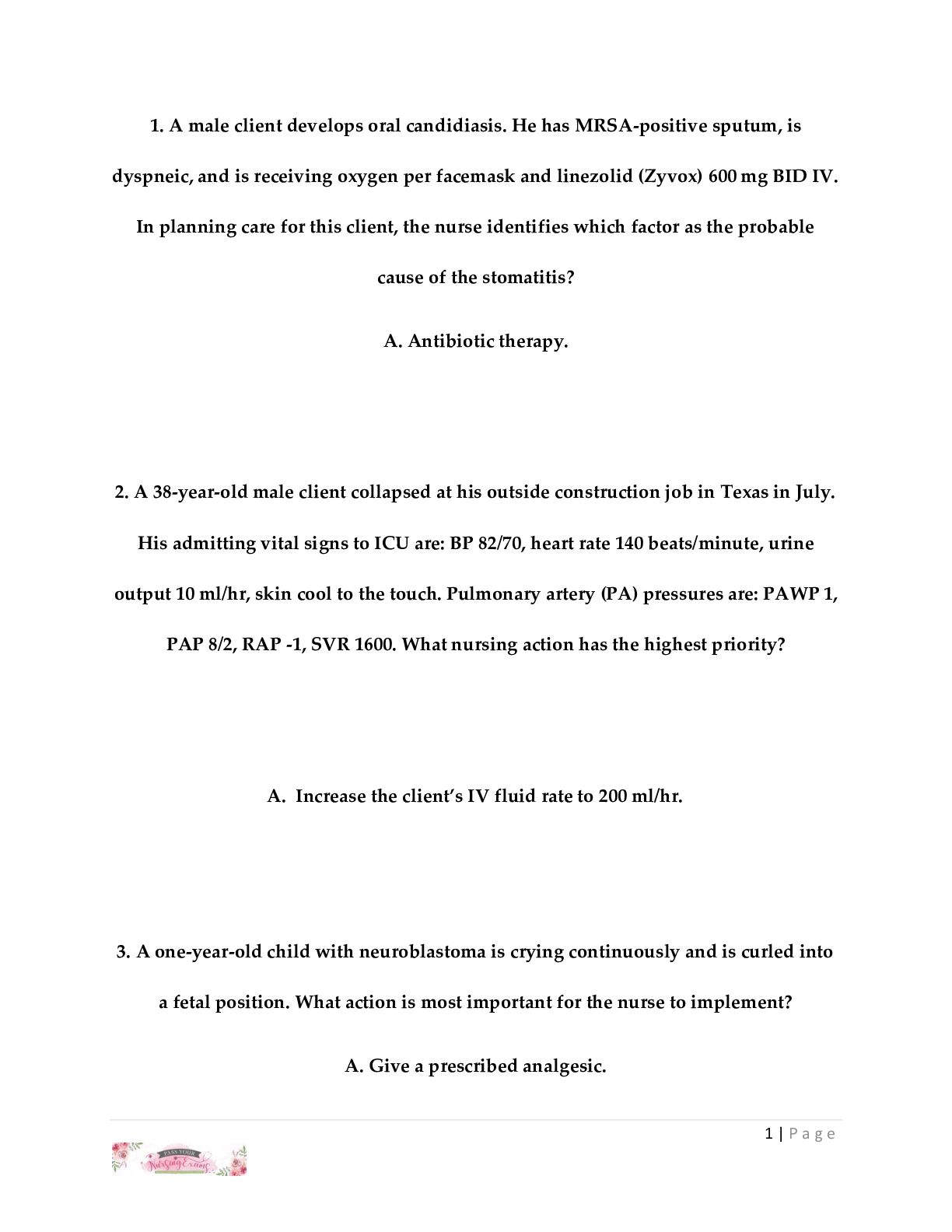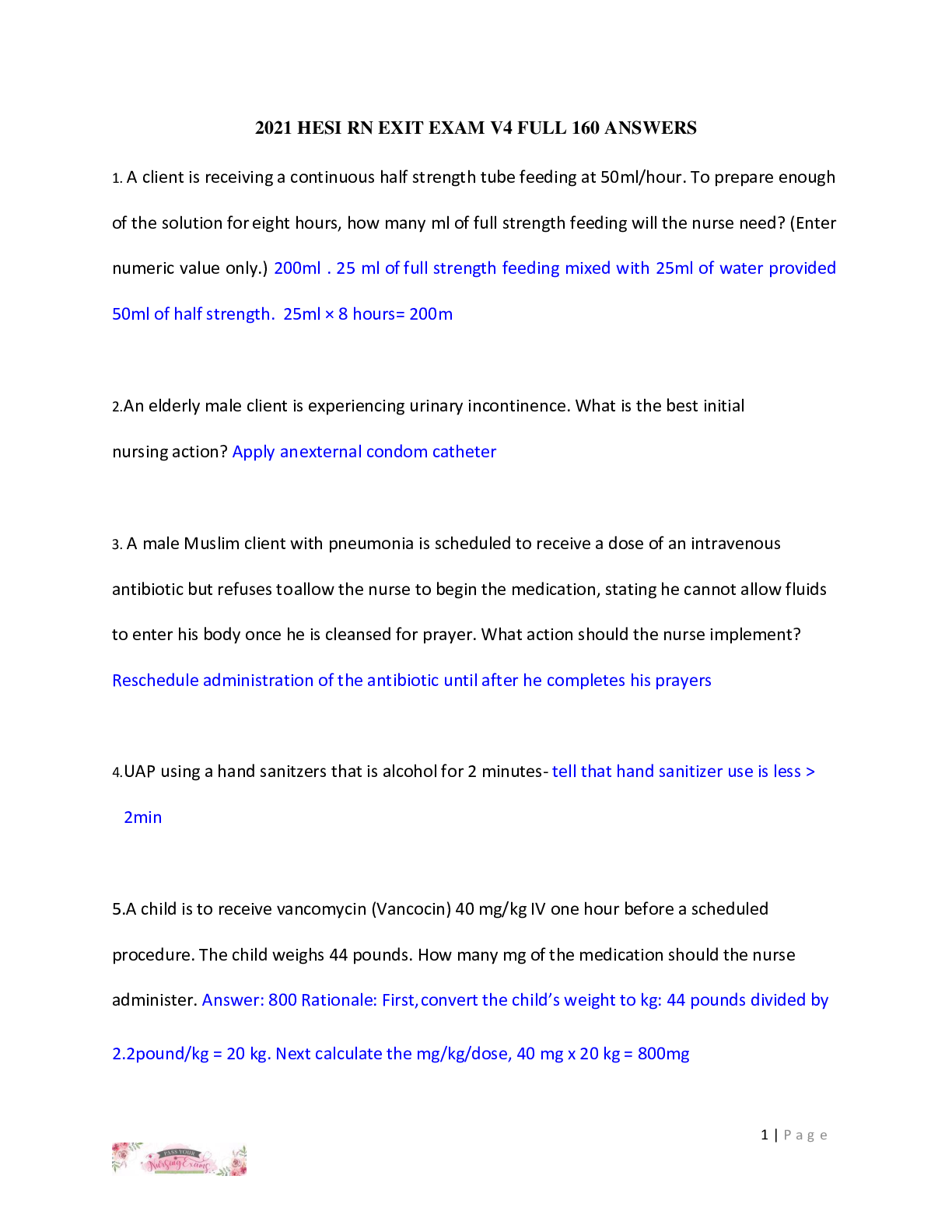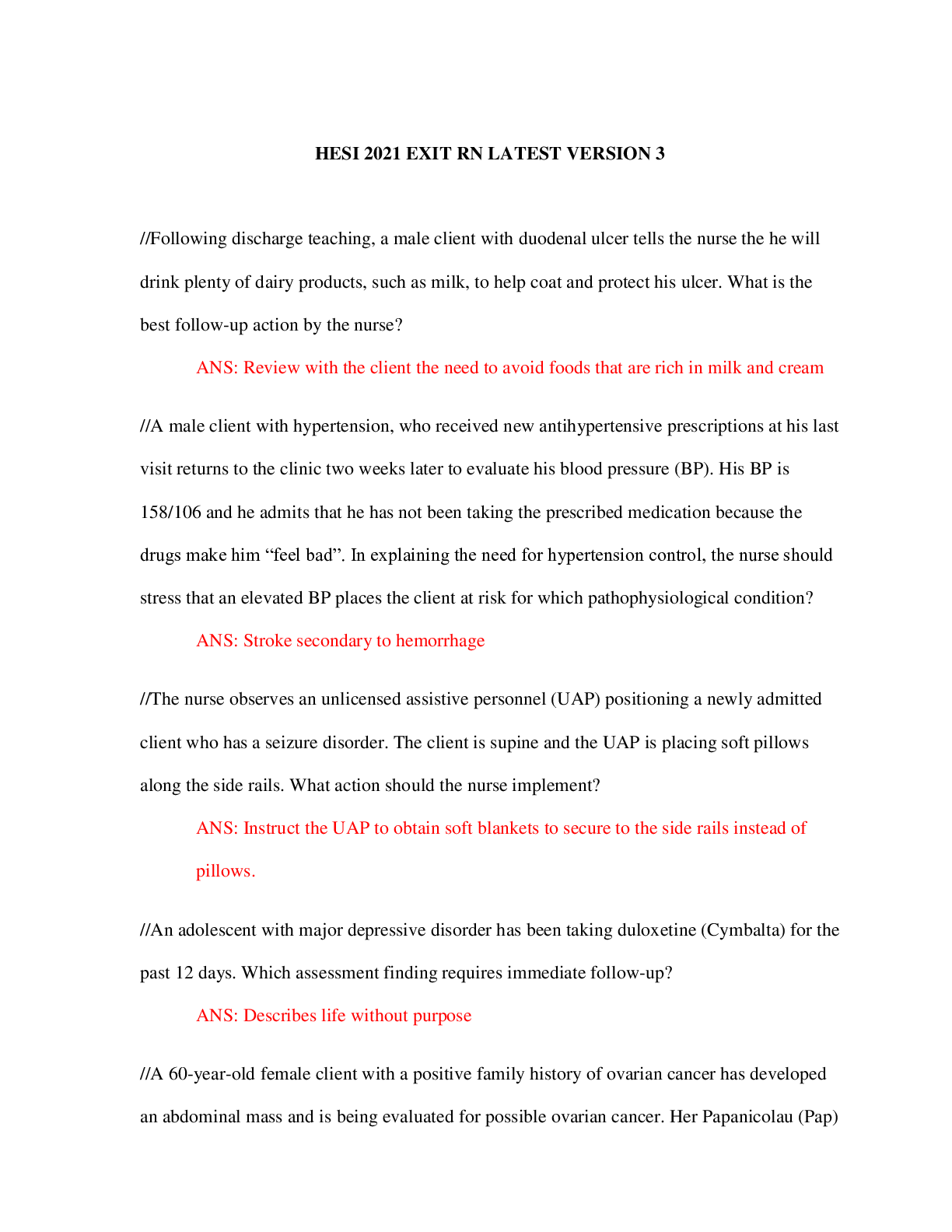*NURSING > HESI > HESI Mental Health | Highly Rated | Questions and Answers with Rationales | LATEST (All)
HESI Mental Health | Highly Rated | Questions and Answers with Rationales | LATEST
Document Content and Description Below
HESI Mental Health | Highly Rated | Questions and Answers with Rationales | LATEST 1. An elderly female client with advanced dementia is admitted to the hospital with a fractured hip. The client ... repeatedly tells the staff, "Take me home. I want my Mommy." Which response is best for the nurse to provide? A) Orient the client to the time, place, and person. B) Tell the client that the nurse is there and will help her. C) Remind the client that her mother is no longer living. D) Explain the seriousness of her injury and need for hospitalization. Rationale: Those with dementia often refer to home or parents when seeking security and comfort. The nurse should use the techniques of "offering self" and "talking to the feelings" to provide reassurance (B). Clients with advanced dementia have permanent physiological changes in the brain (plaques and tangles) that prevent them from comprehending and retaining new information, so (A, C, and D) are likely to be of little use to this client and do not help the client's emotional needs. 2. The nurse is assessing a client's intelligence. Which factor should the nurse remember during this part of the mental status exam? A) Acute psychiatric illnesses impair intelligence. B) Intelligence is influenced by social and cultural beliefs. C) Poor concentration skills suggests limited intelligence. D) The inability to think abstractly indicates limited intelligence. Rationale: Social and cultural beliefs (B) have significant impact on intelligence. Chronic psychiatric illness may impair intelligence (A), especially if it remains untreated. Limited concentration does not suggest limited intelligence (C). Difficulties with abstractions are suggestive of psychotic thinking (D), not limited intelligence. 3. The nurse should include which interventions in the plan of care for a severely depressed client with neurovegetative symptoms? (Select all that apply.) A) Permit rest periods as needed. B) Speaking slowly and simply. C) Place the client on suicide precautions. D) Allow the client extra time to complete tasks. E) Observe and encourage food and fluid intake. F) Encourage mild exercise and short walks on the unit Rationale: (A, B, D, E, and F) should be included in this client's plan of care because these measures promote the client's comfort and well-being. Neurovegetative symptoms accompany the mood disorder of depression and include physiological disruptions, such as anorexia, constipation, sleep disturbance, and psychomotor retardation. Suicidal ideation (C) does not usually accompany the neurovegetative state because the client does not have the energy or high level of anxiety associated with a suicide attempt. 4. An 86-year-old female client with Alzheimer's disease is wandering the busy halls of the extended care facility and asks the nurse, "Where should I stand for the parade?" Which response is best for the nurse to provide? A) Anywhere you want to stand as long as you do not get hurt by those in the parade. B) You are confused because of all the activity in the hall. There is no parade. C) Let us go back to the activity room and see what is going on in there. D) Remember I told you that this is a nursing home and I am your nurse. Rationale: It is common for those with Alzheimer's disease to use the wrong words. Redirecting the client (using an accepting non-judgmental dialogue) to a safer place and familiar activities (C) is most helpful because clients experience short-term memory loss. (A) dismisses the client's attempt to find order and does not help her relate to her surroundings. (B) dismisses the client and may increase her anxiety level because it merely labels the client's behavior and offers no solution. It is very frustrating for those with Alzheimer's disease to "remember," and scolding them (D) may hurt their feelings. 5. Based on non-compliance with the medication regimen, an adult client with a medical diagnosis of substance abuse and schizophrenia was recently switched from oral fluphenazine HCl (Prolixin) to IM fluphenazine decanoate (Prolixin Decanoate). What is most important to teach the client and family about this change in medication regimen? A) Signs and symptoms of extrapyramidal effects (EPS). B) Information about substance abuse and schizophrenia. C) The effects of alcohol and drug interaction. D) The availability of support groups for those with dual diagnoses. Rationale: Alcohol enhances the EPS side effects of Prolixin. The half-life of Prolixin PO is 8 hours, whereas the half-life of the Prolixin Decanoate IM is 2 to 4 weeks. That means the side effects of drinking alcohol are far more severe when the client drinks alcohol after taking the long-acting Prolixin Decanoate IM. (A, B, and D) provide valuable information and should be included in the client/family teaching, but they do not have the priority of (C). 6. An adult male client who was admitted to the mental health unit yesterday tells the nurse that microchips were planted in his head for military surveillance of his every move. Which response is best for the nurse to provide? A) You are in the hospital, and I am the nurse caring for you. B) It must be difficult for you to control your anxious feelings. C) Go to occupational therapy and start a project. D) You are not in a war area now; this is the United States. [Show More]
Last updated: 1 month ago
Preview 1 out of 32 pages
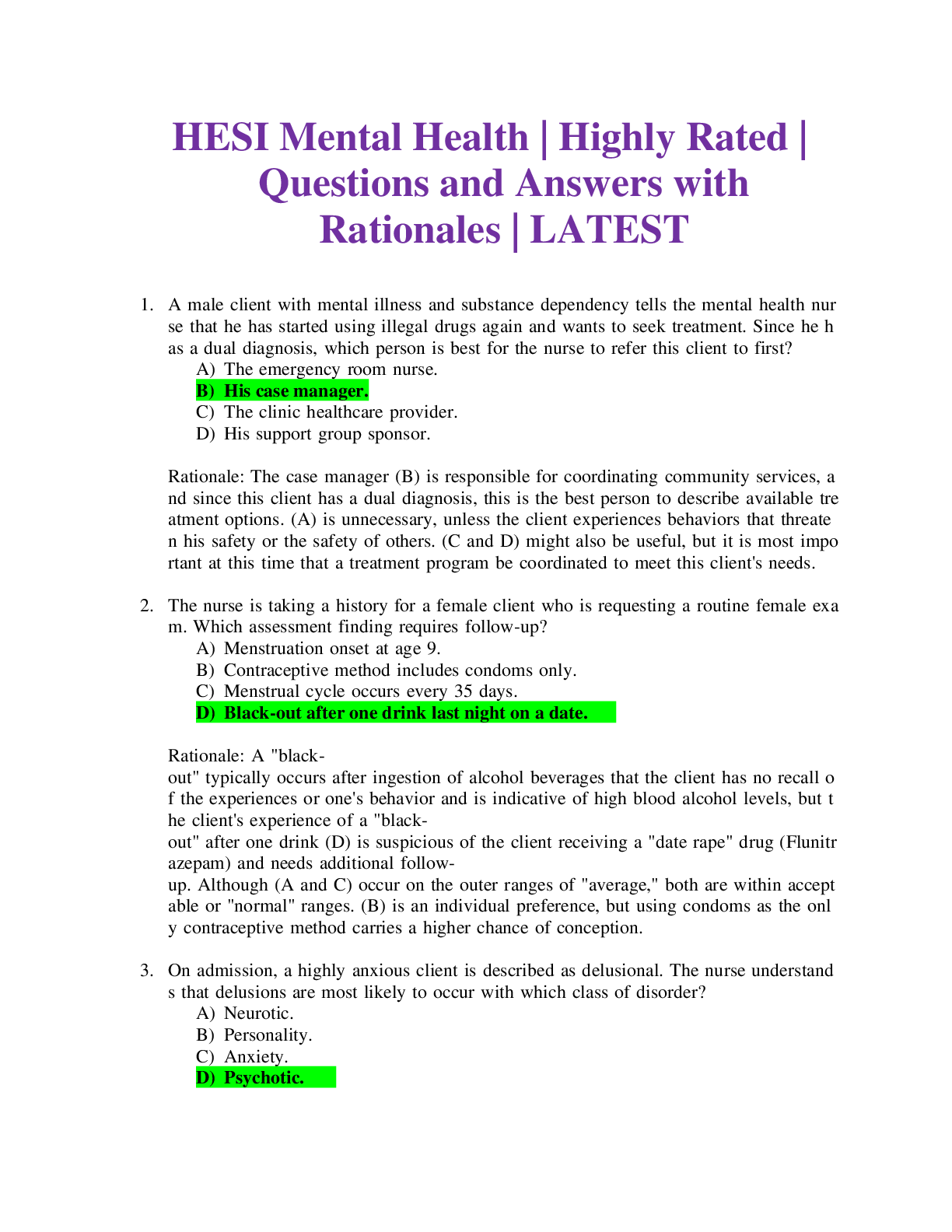
Reviews( 0 )
Document information
Connected school, study & course
About the document
Uploaded On
Jan 26, 2021
Number of pages
32
Written in
Additional information
This document has been written for:
Uploaded
Jan 26, 2021
Downloads
0
Views
68

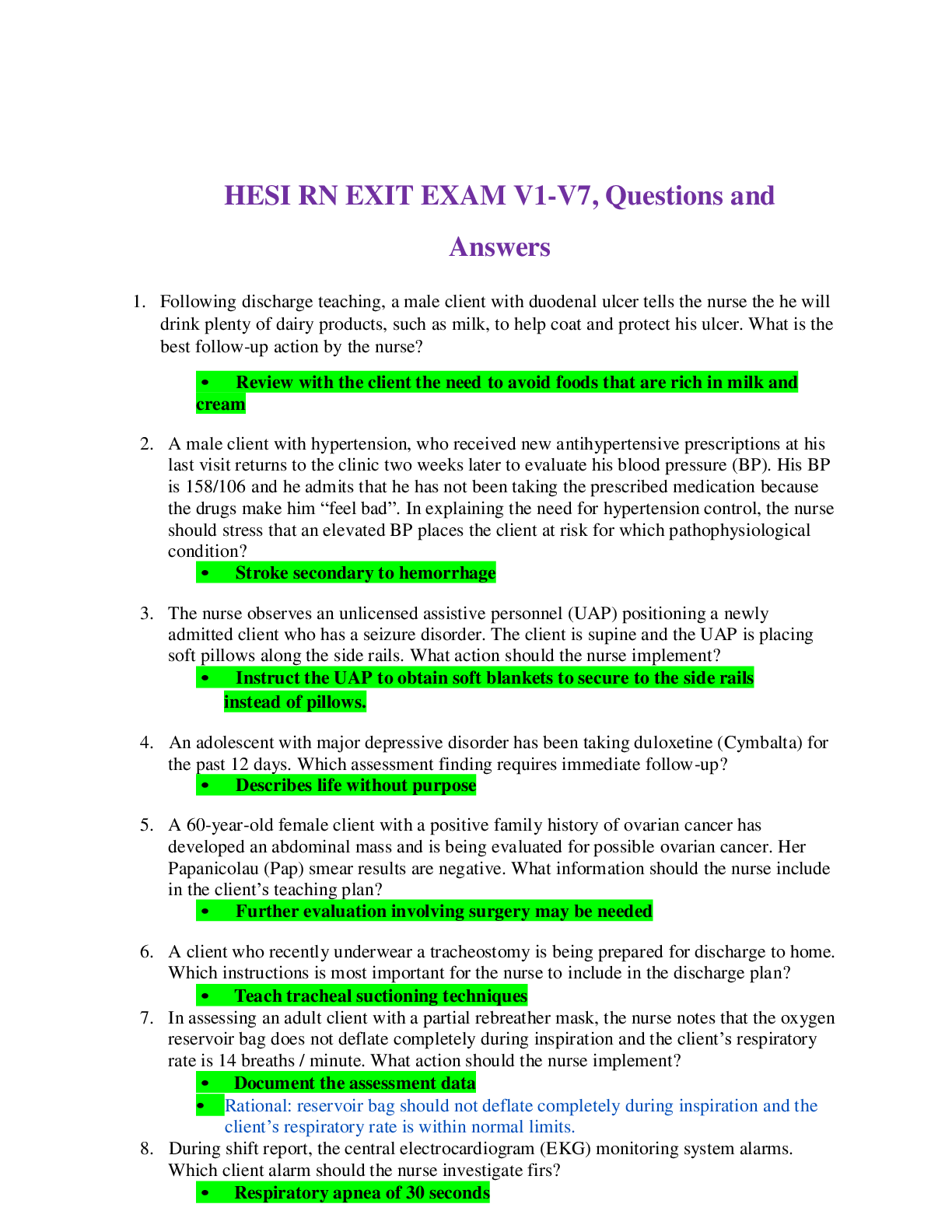
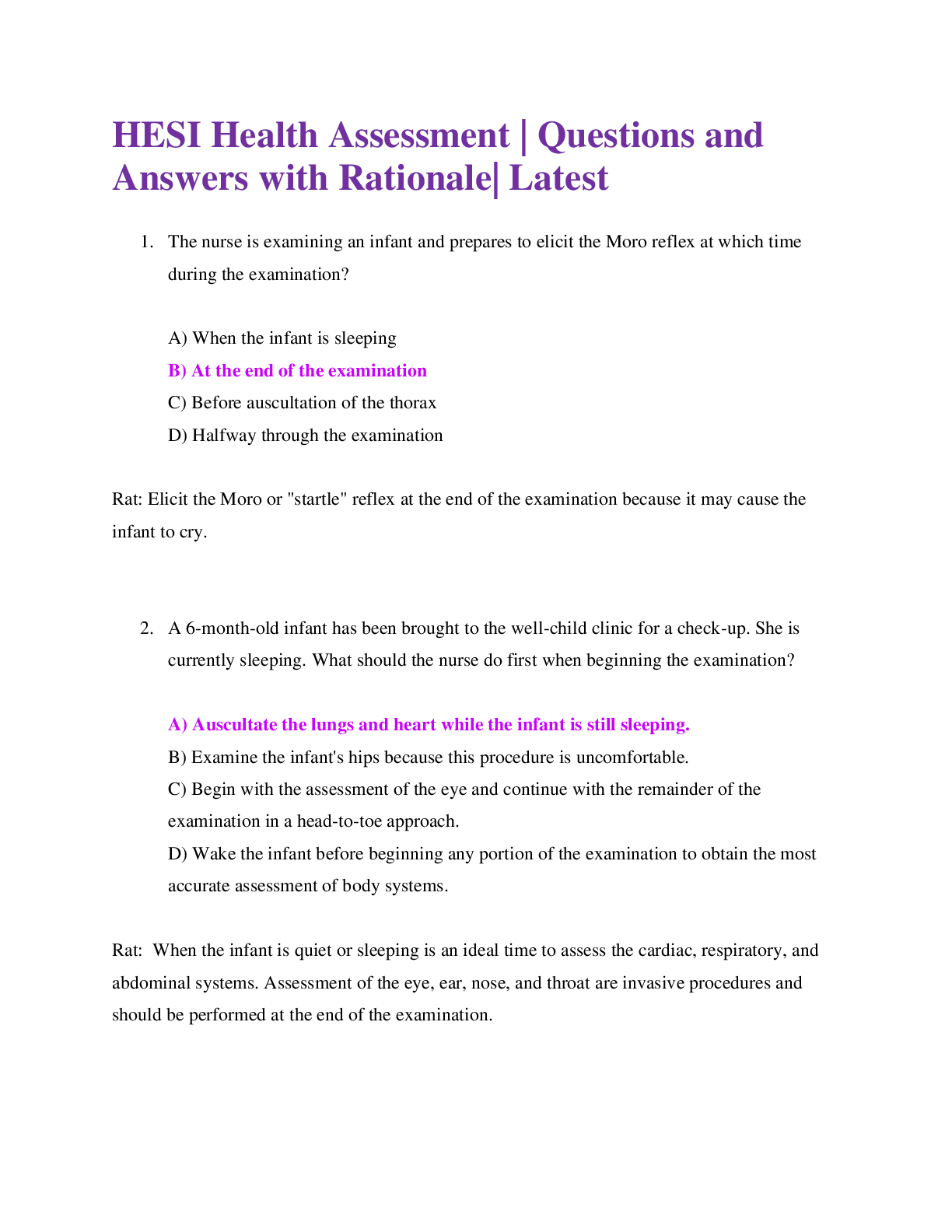

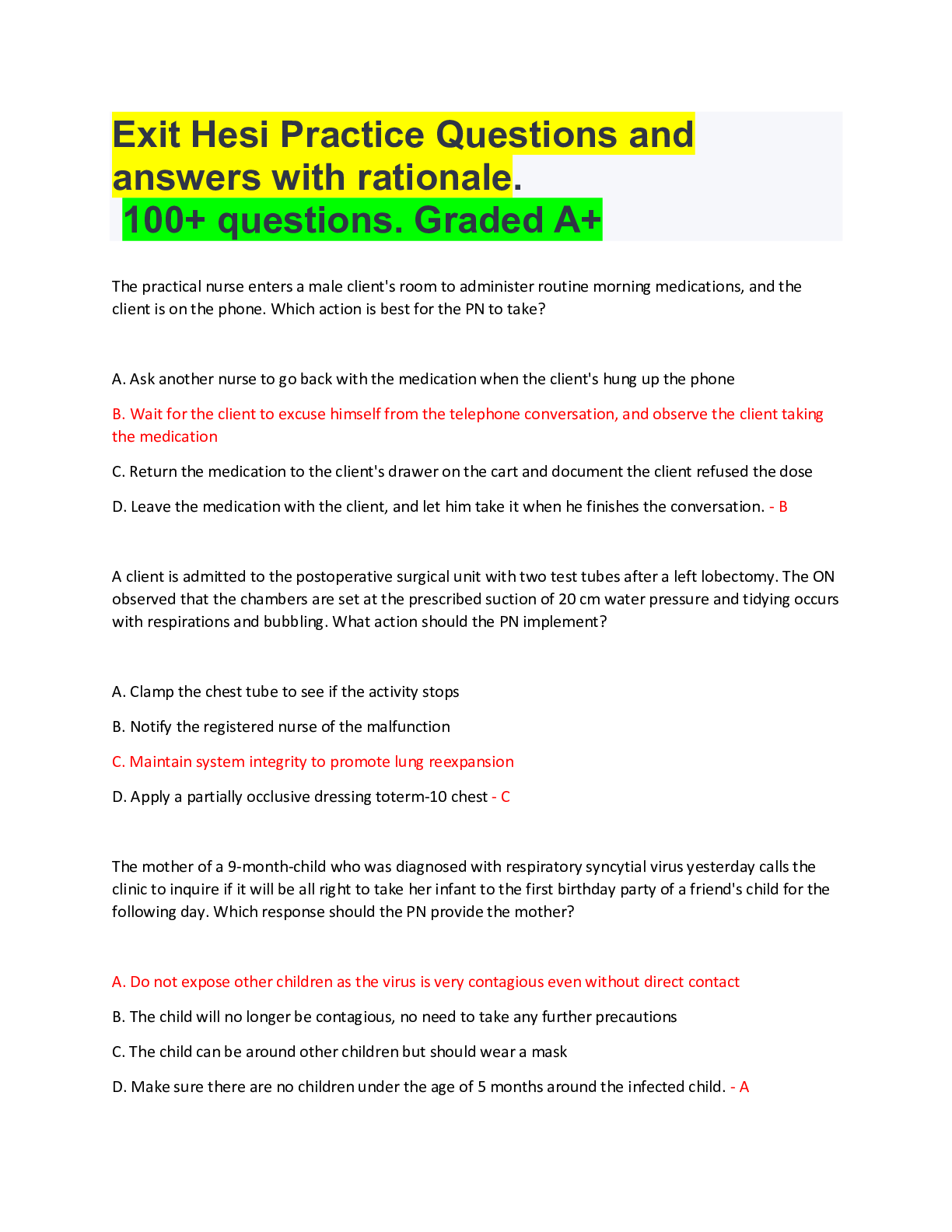
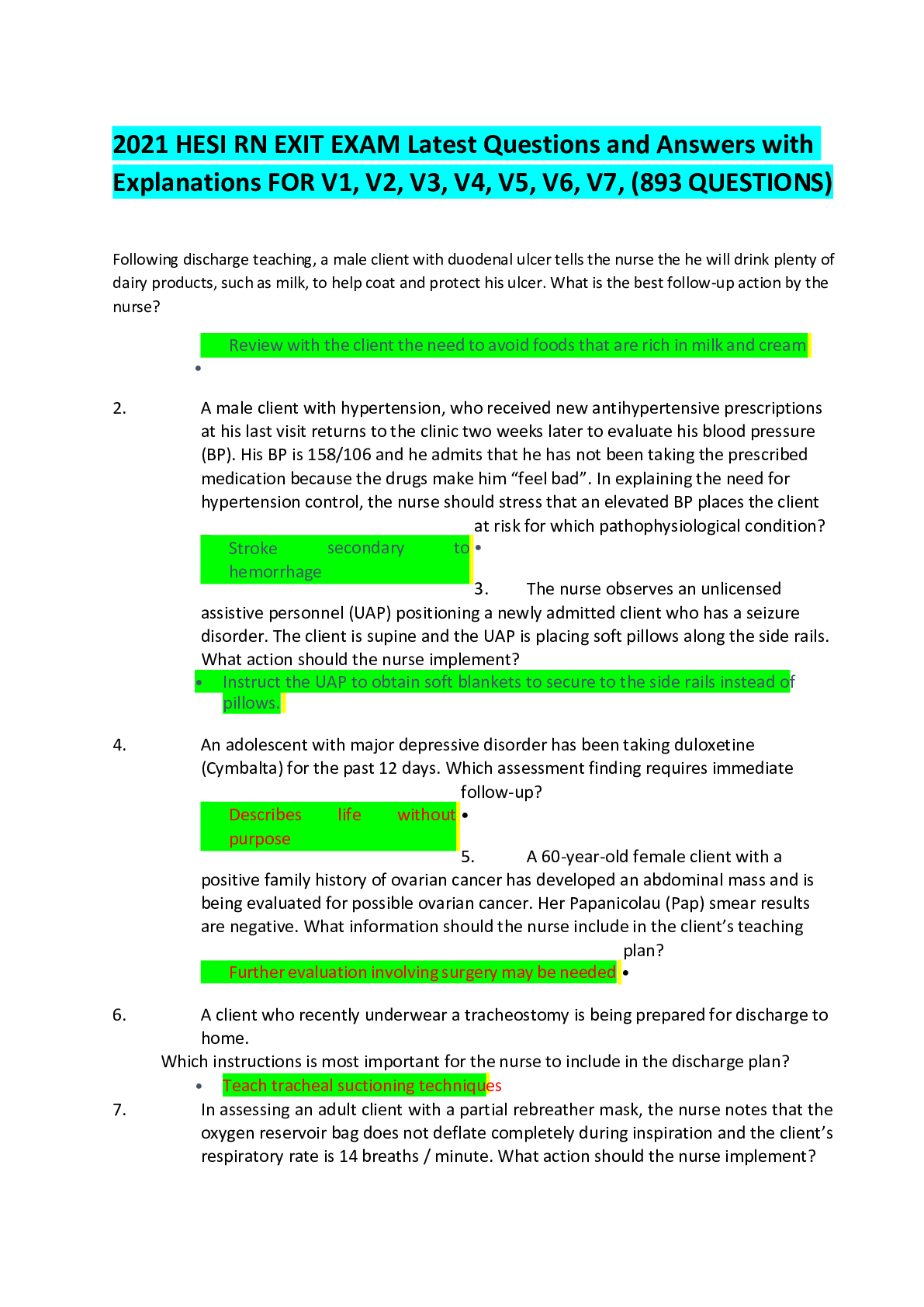
, Latest Questions and Answers with Explanations, All Correct Study Guide, Download to Score A.png)
